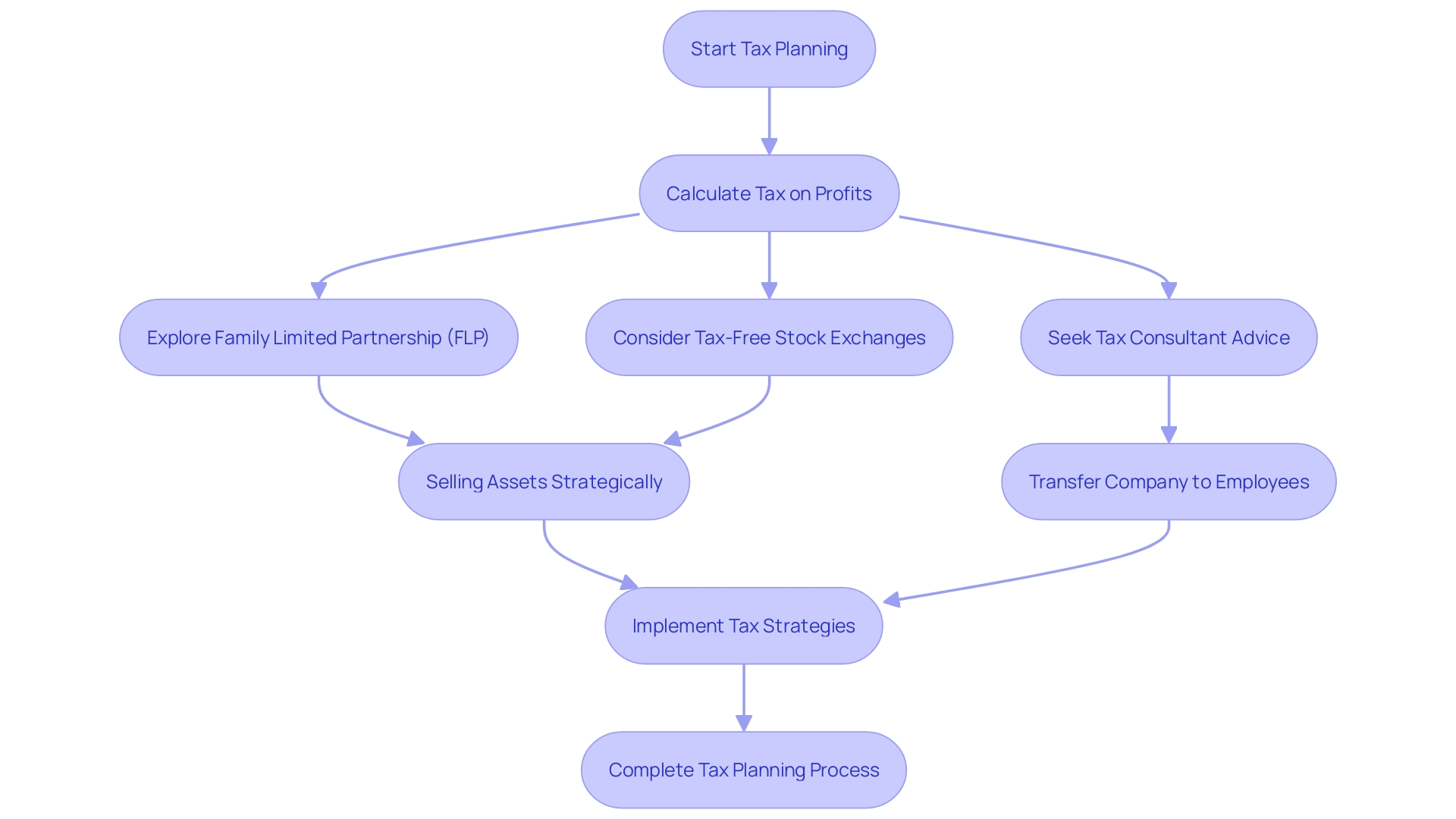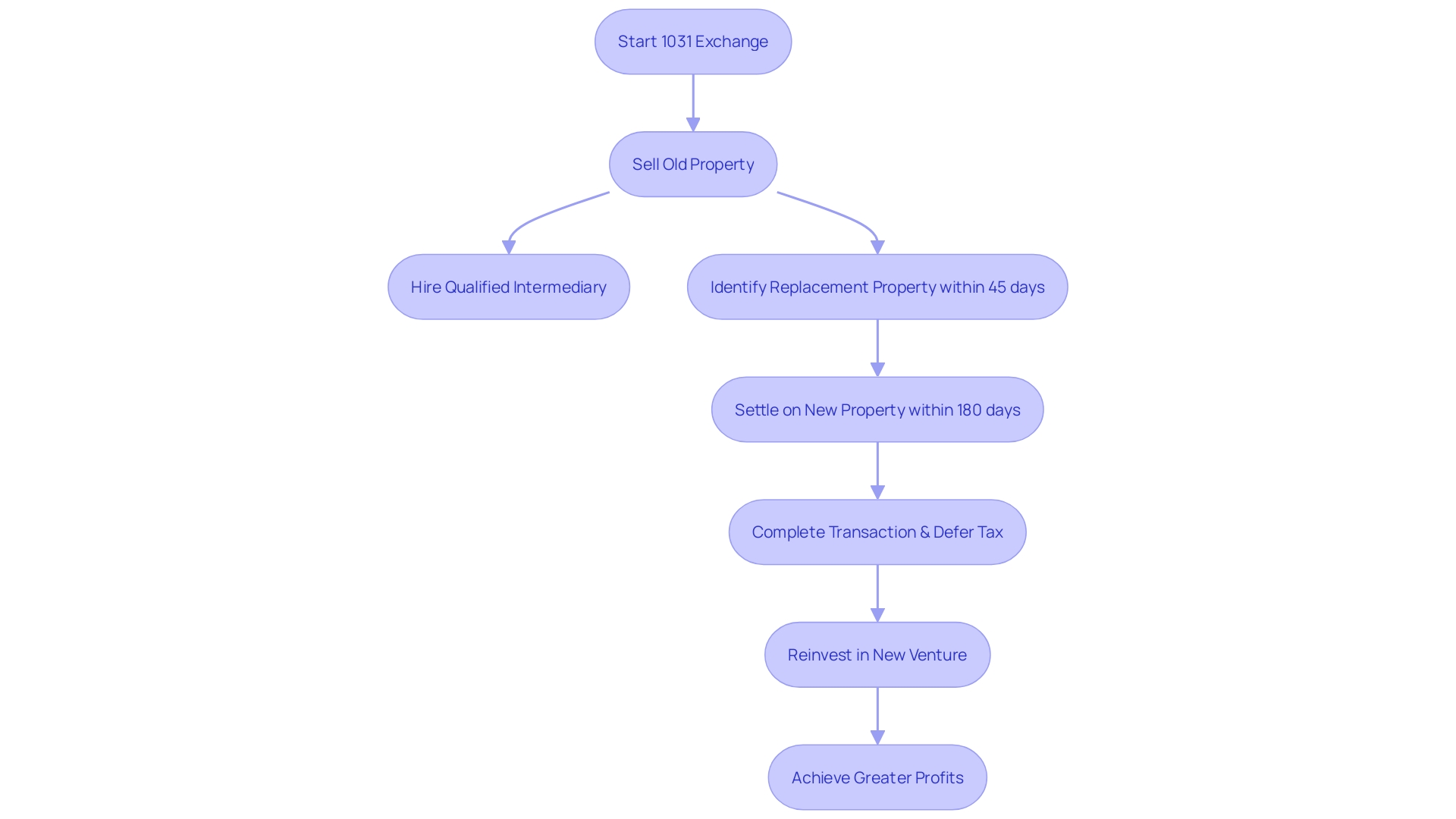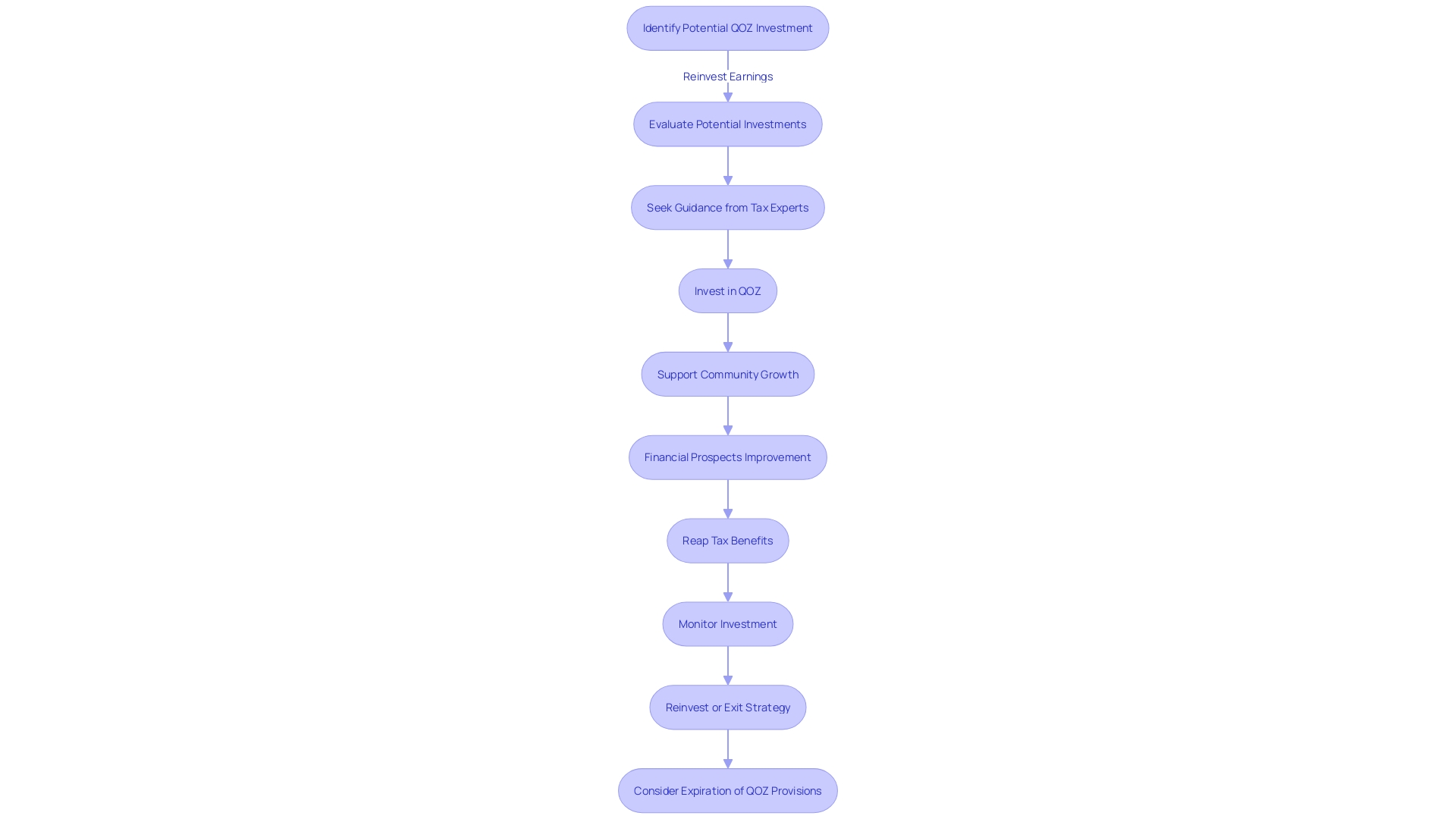Introduction
Thinking about selling your business? Before getting started with the process it's important to have a grasp of capital gains tax. This tax is quite impactful. Influences your financial results. Its calculated based on the profits you earn when you sell your business.
Don't fret! You can use tactics to reduce the effects of capital gains tax and protect your companys financial health effectively. In this piece we will delve into the significance of preparing for the future various forms of capital gains choosing the timing, for sales to maximize savings utilizing exemptions and exchanges successfully and investing in accredited opportunity zones. By collaborating with professionals and embracing innovative strategies you can navigate through the intricacies of capital gains tax and secure a more lucrative deal.
Lets explore the realm of capital gains tax and uncover strategies to maximize your profits from selling your business.
Understanding Capital Gains Tax
Before you fully engage in the process of selling your company, it is important to have a thorough understanding of the intricacies of the tax on profits made from the sale. This tax is calculated by subtracting the selling price from the adjusted basis, which takes into account the original purchase price as well as any relevant upgrades or specific expenditures incurred over time. When exploring this terrain efficiently think about tactics like setting up a Family Limited Partnership (FLIP). It has proven to be effective, in transferring wealth across generations in a tax way sidestepping estate taxes and distributing income to offspring and grandchildren.
Tax free stock exchanges are a way to facilitate strategic acquisitions by using stock swaps instead of cash upfront and possibly delaying capital gains tax obligations. Additionally " seeking advice from a tax consultant can provide suggestions on reorganizing your company for tax efficiency and getting it ready, for a future sale."
Individual owners could consider selling their assets to help stabilize yearly profits and manage taxable income efficiently. Moreover transferring the company to employees. Either, through a sale or an Employee Stock Ownership Plan (ESOP). Could offer tax advantages and secure the future of the companys heritage.
The emphasis is on the importance of planning for the future and understanding how taxes impact your operations in the long term. Collaborating closely with specialists and exploring innovative strategies enables you to reduce the impact of gains tax and protect your company's financial health both during and after a transaction.

Long-Term vs. Short-Term Capital Gains
When you're thinking about selling your enterprise it's crucial to take into account when you sell and how long you've held onto your possessions as it impacts the tax rate on profits you'll have to deal with. This is because there's a difference between term and long term profits. If you've owned your possessions for over a year before selling them you'll be looking at long term profit tax which is usually more advantageous compared to the short term rate that applies to possessions sold within a year of acquiring them. Strategic planning within these guidelines could result in tax advantages. Example; Think about a scenario where a company proprietor has built their establishment from the ground up and is currently seeing a market value in the billions. If they decide to sell their shares after possessing them for, than a year they can enjoy lower tax rates on their extended capital gains. Understanding this difference is crucial not for annual tax planning but also for devising strategies to promote growth and expansion. For instance, with tax free stock swaps. Where having a grasp of these tax rates nuances becomes imperative.
Timing Your Sale
Timing your business sale effectively involves more than identifying the perfect buyer or market conditions. It also involves strategic tax planning considerations for maximizing savings on gains tax by selling during a period of lower income when you may benefit from a more favorable bracket alignment. For example tax free stock swaps can be a strategy. Of selling your company's stock directly you could exchange it thus postponing the tax obligation. Furthermore, it's crucial to understand the distinction between short-term and long-term gains; assets held for more than a year qualify for lower tax rates.
Robert Traurig and other tax specialists emphasize the importance of keeping records and understanding the fundamentals of your investments in real estate law expertise to fully comprehend the concept of basis for your capital profit calculations when selling an asset. Moreover through life milestones can trigger a step up in basis that reduces the taxable amount, on a gain.
Considering consulting with employees or seeking advice from an advisor at the beginning of the sales process could prove to be advantageous strategies as well. These experts can help in restructuring your company to maximize tax benefits. Kevin McArdle's viewpoint serves as a reminder that selling a company involves more than making profits – personal considerations also hold significance. Regardless of your motive, for selling equipping yourself with knowledge and preparation will enable you to make decisions that cater to both your objectives and personal aspirations.
It's important to remember that tax planning for gains on assets is complex and has various aspects to it. A solid understanding of the tax regulations and advice suggested by experts can assist you in accomplishing a more lucrative transaction. Collaborate closely with a tax consultant who comprehends your situation for optimal guidance and to maximize the advantages of your accomplishments.

Leveraging Qualified Small Business Stock Exemptions
Comprehending the complexities of profits levy can appear daunting for entrepreneurs of any kind. Hidden within the tax laws lies a potential ace up your sleeve. The Qualified Small Business Stock (QSBS) exemption. It's a clause within the Internal Revenue Code that serves as an opportunity, for companies that meet the criteria as a qualified trade or enterprise (QTBO). It allows for the possibility of excluding capital gains from taxes when they surpass $10 million or are 10 times greater, than the investment amount.
To take full advantage of this advantage effectively the company issuing the shares must be heavily involved in a Qualified Trade Or Business (QTOB) dedicating a minimum of 80% of its resources to commercial pursuits. The main thing to observe is that not every company is qualified, for this tax saving approach. In particular enterprises whose primary asset is the reputation or expertise of one or more employees do not qualify as QTOBs and thus do not qualify for this tax advantage.
The impact of the QSBS exemption is quite substantial in reality! Consider this. Envision an entrepreneur who has dedicated years of hard work to building a flourishing company; they could ultimately have a reduced tax liability when selling their enterprise and retain a greater portion of their rightfully earned income in the procedure! Although the specifics of the QSBS criteria require scrutiny and analysis to navigate successfully The trade off for meeting these requirements is an effective tax haven that could be the deciding factor, between an average exit and a truly life changing financial outcome.
When mapping out your tax approach like any tax plan requires the insights of a tax consultant to steer through the rules and guarantee your adherence to IRS standards in mind that reducing tax responsibilities isn't the sole aim but doing it accurately and ethically is crucial The QSBS exception serves as proof of the impact of informed fiscal strategizing a method that if applied properly can notably improve financial results, for entrepreneurs.

Utilizing 1031 Exchanges
Participating in beneficial swaps like the 1031 exchanges could have a significant impact for entrepreneurs seeking to improve their financial achievements. This intelligent decision allows you to redirect the funds from selling your enterprise into acquiring a business or property. The main objective of this strategy is deferring the payment of gains generated by investments, which can be highly advantageous. Instead of immediately paying taxes, you have the opportunity to reinvest that money in your new business venture, with the hope of achieving greater profits.
In real life scenarios and practical applications than just theory stand as evidence of its effectiveness. Such, as the successful utilization of a family limited partnership (FLP) to transfer wealth between generations without being burdened by estate taxes. Following the timelines set by the IRS for 1031 exchanges is crucial. Finding a replacement property within 45 days and completing the transaction within 180 days helps in keeping your capital moving forward smoothly.
It's important to enlist a certified middleman to manage the funds from the sale transaction to adhere to IRS rules and regulations smoothly though there might be some fees involved in this process; it plays a crucial role in guaranteeing compliance with tax laws and guidelines. By handling these choices with care and seeking expert guidance when needed will lay a solid foundation, for continued prosperity and a lasting legacy.

Investing in Qualified Opportunity Zones
As time passes and the Tax Cuts and Jobs Acts benefits decrease gradually year after year; the appeal of Qualified Opportunity Zones (QOZs) remains strong for individuals considering selling their enterprises due, to their attractiveness. These underdeveloped areas designated for rejuvenation provide a trio of tax advantages. Delaying payment of capital gains taxes while potentially lowering them significantly or even eliminating them altogether. The key lies in reinvesting earnings into these zones to support and enhance businesses and real estate within their boundaries. However it is important to act given the deadline of 2026 to take advantage of these incentives in Qualified Opportunity Zones (QOZ). Investors must carefully evaluate the potential of QOZ investments to make financial decisions that are both lucrative and tax efficient.It's advisable to seek guidance, from a tax expert when navigating these investment opportunities. Taking this stance not only supports the goals of promoting community growth and employment opportunities but also allows investors to improve their financial prospects while participating in the rejuvenation of these regions.

Conclusion
Ultimately it's important to grasp the significance of capital gains tax when you decide to sell your business successfully navigating this aspect can have a major impact on your companys stability employing smart strategies such as establishing a Family Limited Partnership (FLP) or making use of tax free stock exchanges can help mitigate the effects of capital gains tax in addition timing the sale wisely and taking advantage of exemptions, like Qualified Small Business Stock (QSBS) can result in substantial tax savings and a positive financial transformation
By using 1031 exchanges effectively you're able to delay paying capital gains tax and put the funds into business opportunities; at the same time investing in Qualified Opportunity Zones (QOZs) offers tax benefits and helps develop local communities too! To get the results when selling your business and managing capital gains tax complexities smartly. It's crucial to adopt new ideas and work closely with experts in the field while seeking advice from tax professionals; being well prepared with knowledge and a solid plan is essential, for maximizing profits and achieving your goals.




